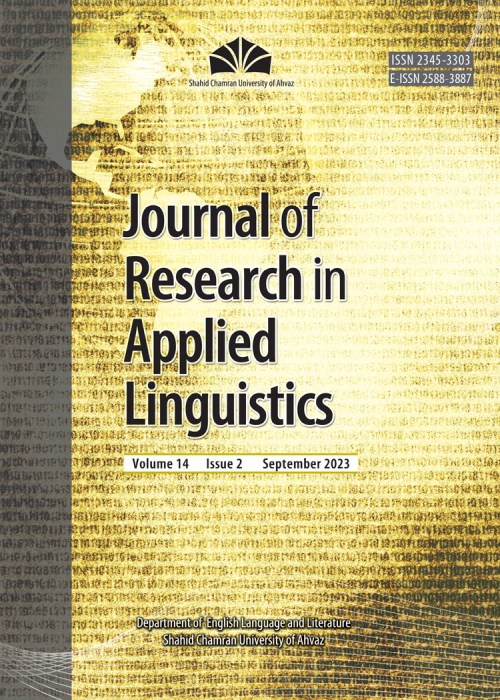Concept of Linguistic Perceptual Space
Author(s):
Article Type:
Research/Original Article (دارای رتبه معتبر)
Abstract:
This article is dedicated to the linguistic perceptual space. Of great interest in cognitive science is the relationship between linguistic and perceptual ideas about space. There are different approaches, some of them explore aspects of linguistic coding of space, which are closely related to the functioning of the visual system, and some of them are aimed at exploring the differences between linguistic and visual representations of space. Linguistic studies show that the presence of two main types of demonstrative points, near and far, characteristic of most languages, is evidence that language differences are derived from sensory ones. However, they are independent of each other. It is noted that the main characteristic of linguistic perceptual space is its deictism. At the present stage of development of linguistics, the following types of deixis are distinguished: primary, secondary, textual, social and cognitive. The authors come to the conclusion that the perceptual space is identical with the concept of the deictic field, which is defined by three parameters — temporal, spatial, and personal.
Keywords:
Language , Linguistics , Space , Perception , English
Language:
English
Published:
Journal of Research in Applied Linguistics, Volume:10 Issue: 1, Spring 2019
Pages:
806 to 814
magiran.com/p2058390
دانلود و مطالعه متن این مقاله با یکی از روشهای زیر امکان پذیر است:
اشتراک شخصی
با عضویت و پرداخت آنلاین حق اشتراک یکساله به مبلغ 1,390,000ريال میتوانید 70 عنوان مطلب دانلود کنید!
اشتراک سازمانی
به کتابخانه دانشگاه یا محل کار خود پیشنهاد کنید تا اشتراک سازمانی این پایگاه را برای دسترسی نامحدود همه کاربران به متن مطالب تهیه نمایند!
توجه!
- حق عضویت دریافتی صرف حمایت از نشریات عضو و نگهداری، تکمیل و توسعه مگیران میشود.
- پرداخت حق اشتراک و دانلود مقالات اجازه بازنشر آن در سایر رسانههای چاپی و دیجیتال را به کاربر نمیدهد.
In order to view content subscription is required
Personal subscription
Subscribe magiran.com for 70 € euros via PayPal and download 70 articles during a year.
Organization subscription
Please contact us to subscribe your university or library for unlimited access!


